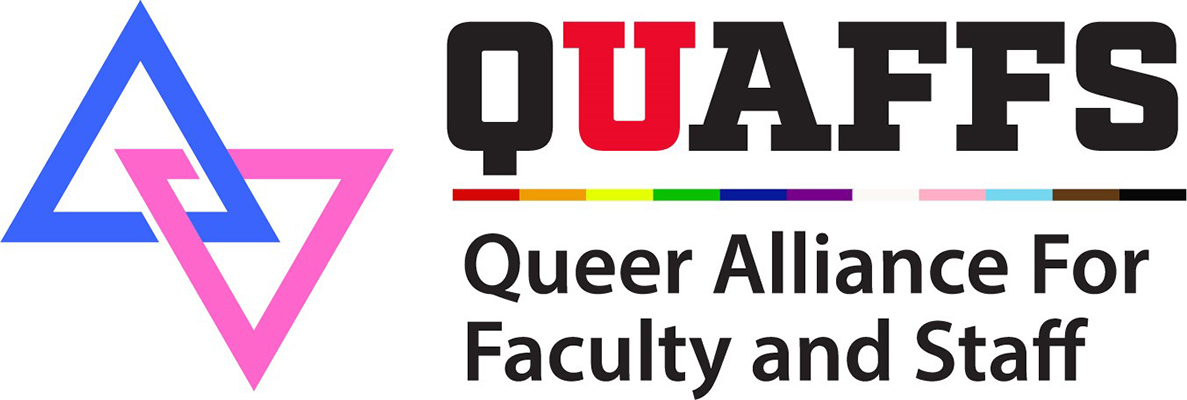LISA G. ASPINWALL, PH.D.
PROFESSOR, Social Area Coordinator, SOCIAL PSYCHOLOGY, HEALTH PSYCHOLOGY
Curriculum Vitae | Health Cognition Lab
Affiliations
VPCAT
Queer Alliance for Faculty and Staff (QUAFFS)
GLBTQ+ Alliance in Social and Personality Psychology (GASP)
Disability Advocacy & Research Network (DARN) | DARN Blog
CURRENT COURSES
Social Psychology of Health & Illness (PSY 4460)
Advanced Social Psychology (PSY 5410/6410)
Graduate Seminar in Self-Regulation (PSY 7465)
Introduction to Social Psychology (PSY 2500)
CONTACT INFORMATION
Office: 804 BEHS
Phone: 801-587-9021
Email: lisa.aspinwall@psych.utah.edu
Research Interests
My research program at the interface of social and health psychology examines self-regulatory processes and future-oriented thinking as people seek to anticipate, prevent, understand, and manage important negative outcomes, especially in the domain of health. Most recently, we have examined these processes in the area of predictive genetic testing for cancer and severe obesity. Personalized medicine (e.g., predictive genetic testing) can provide people with information about their own future health problems, but little is known about how people think about and use such information to reduce future health risks or modify current ones. Central to this effort is an understanding of how people think about genetic risks, including whether these risks interact with personal behavior or environmental exposure, whether and how these risks may be modified, and whether genetic explanations are seen to be stigmatizing or non-stigmatizing for different illnesses. Applications of this work include tailoring health-risk communications and other forms of patient education to promote adherence to medical recommendations regarding prevention, screening, and treatment.
For more information, please see Health Cognition Lab and Current Collaborators.
Opportunities for Graduate Students
Dr. Aspinwall will be reviewing applications to our PhD program in Social Psychology. Apply in Fall 2025 to start in Fall 2026.
If you are interested in future-oriented thinking, health cognitions (how people think about genetic causes, family history, and risk), and preventive health behaviors, please consider applying. We have projects in collaboration with the Huntsman Cancer Institute and the Comprehensive Weight Management Clinic at the University of Utah.
Opportunities for Undergraduate Students
We have a few openings each year for interested undergraduates, including those pursuing
an Honors degree in Psychology. For more information, please contact Dr. Aspinwall or Inaki Rashid.
Education
Ph.D. University of California, Los Angeles (Psychology, 1991)
M.A. University of California, Los Angeles (Psychology, 1988)
B.A. Stanford University (Psychology, 1987)
Selected Publications
Shivers, C.M., & Aspinwall, L.G. (2026). Anti-ableist strategies for Introductory Psychology classes: Creating inclusive classes without compromising rigor. In R.R. Totton & C.A. Sanderson (Eds.), Teaching Introduction to Psychology. Edward Elgar Publishing. Electronic publication, January 13, 2026.
McGarrity, L.A., Farnsworth, H.R., Aspinwall, L.G., Ibele, A.R., & Terrill, A.L. (2025). Weight stigma and bariatric surgery: Prospective improvements, psychological health, and weight. Health Psychology, 44(10), 936-943. Electronic publication June 5, 2025.
Aspinwall, L.G., & Shivers, C.M. (2024). Teaching anti-ableism: A practical guide to creating friendly and flexible courses without compromising rigor. In C. Sanderson & R. Totton (Eds.), Teaching Social Psychology, pp. 109-121. Edward Elgar Publishing
Wu, Y.P., Stump, T.K., Hay, J.L., Aspinwall, L.G., Boucher, K.B., Deboeck, P., Grossman, D., Mooney, K., Leachman, S.A., Smith, K.R., Wankier, A.P., Brady, H.L., Hancock, S.E., Parsons, B.G., & Tercyak, K.P. (2023). The Family Lifestyles, Actions and Risk Education (FLARE) Study: Protocol for a randomized controlled trial of a sun protection intervention for children of melanoma survivors. Contemporary Clinical Trials, 131.
Aspinwall, L.G., Drummond, D.M., Stump, T. K., Kohlmann, W.K., & Leachman, S.A. (2022). Interactive beliefs about genes and behavior predict improved sun protection following melanoma genetic counseling. Annals of Behavioral Medicine, 56, 816-829.
Aspinwall, L. G., Taber, J.M., Kohlmann, W., & Bautista, L.B. (2022). Psychological aspects of hereditary cancer risk counseling and genetic testing: Toward
an expanded and more equitable view. In J. Steel & B. Carr (Eds.), Psychological Aspects of Cancer, 2e, pp.
359-398. Cham, Switzerland: Springer Nature.
Taber, J.M., Aspinwall, L. G., Drummond, D., Stump, T. K., Kohlmann, W., Champine, M., Cassidy, P. B., & Leachman, S. A. (2021). Priority of risk (but not perceived magnitude) predicts improved sun-protection behavior following genetic counseling. Annals of Behavioral Medicine, 55(1), 24-40. doi: 10.1093/abm/kaaa028.
Stump, T. K., Aspinwall, L. G, Drummond, D., Taber, J. M., Kohlmann, W., Champine, M., Cassidy, P. B., Petrie, T., & Leachman, S. A. (2020). CDKN2A testing and genetic counseling promote reductions in objectively measured sun exposure one year later. Genetics in Medicine. doi: 10.1038/s41436-019-0608-9
Aspinwall, L. G, Stump, T. K., Taber, J. M., Drummond, D., Kohlmann, W., Champine, M., & Leachman, S. A. (2018). Genetic test reporting of CDKN2A provides informational and motivational benefits for managing melanoma risk. Translational Behavioral Medicine, 8(1), 29-43.
Stump, T. K., Aspinwall, L.G., Kohlmann, W., Champine, M., Hauglid, J., Wu, Y., Scott, E., Cassidy, P., Leachman, S.A. (2018). Genetic test-reporting of melanoma risk in minors may improve sun protection without inducing distress. Journal of Genetic Counseling, https://doi.org/10.1007/s10897-017-0185-5.
Brown, T. R., Tabery, J., & Aspinwall, L. G. (May 2016). Understanding validity in empirical legal research: The case for methodological pluralism in assessing the impact of science in court. Hastings Law Journal, 67(4), 1068-1085.
Taber, J. M., & Aspinwall, L. G. (2015). Framing recommendations to promote prevention behaviors among people at high risk: A simulation study of responses to melanoma genetic test reporting. Journal of Genetic Counseling, 24, 771-782.
Taber, J. M., Aspinwall, L. G., Stump, T. K., Kohlmann, W., Champine, M., & Leachman, S. A. (2015). Genetic testing enhances understanding of risk information and acceptance of prevention recommendations compared to family history-based counseling alone. Journal of Behavioral Medicine, 38, 740-753.
Aspinwall, L. G., Taber, J. M., Leaf, S. L., Kohlmann, W., & Leachman, S. A. (2013). Melanoma genetic counseling and test reporting improve screening adherence among unaffected carriers 2 years later. Cancer Epidemiology, Biomarkers & Prevention, 22, 1687-1697.
Aspinwall, L. G., Brown, T. R., & Tabery, J. (2012). The double-edged sword: Does biomechanism increase or decrease judges' sentencing of psychopaths? Science, 337, 846-849.
Aspinwall, L. G. (2011). Future-oriented thinking, proactive coping, and the management of potential threats to health and well-being. In S. Folkman (Ed.), The Oxford Handbook Of Stress, Health And Coping (pp. 334-365). New York: Oxford University Press.
Aspinwall, L. G., & Tedeschi, R.G. (2010). The value of Positive Psychology for Health Psychology: Progress and pitfalls in examining the relation of positive phenomena to health. Annals of Behavioral Medicine, 39, 4-15.
Aspinwall, L. G., & Staudinger, U. M. (Eds.) (2003). A psychology of human strengths: Fundamental questions and future directions for a positive psychology. Washington, DC: APA Books.
Aspinwall, L. G. (1998). Rethinking the role of positive affect in self-regulation. Motivation and Emotion, 22, 1-32.
Reed, M. B., & Aspinwall, L. G. (1998). Self-affirmation reduces biased processing of health-risk information. Motivation and Emotion, 22, 99-132.
Aspinwall, L. G., & Taylor, S. E. (1997). A stitch in time: Self-regulation and proactive coping. Psychological Bulletin, 121, 417-436.
Aspinwall, L. G., & Brunhart, S. M. (1996). Distinguishing optimism from denial: Optimistic beliefs predict attention to health threats. Personality and Social Psychology Bulletin, 22, 993-1003.
MY CURRENT GRADUATE STUDENTS
Lilly Bautista Harrison
Inakhshmi Rashid


